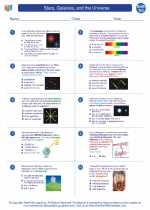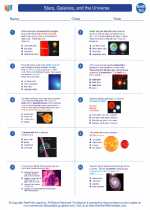Autophagy: A Detailed Explanation and Study Guide
Autophagy is a cellular process that involves the degradation and recycling of cellular components. It plays a crucial role in maintaining cellular homeostasis and is essential for the removal of damaged organelles, misfolded proteins, and intracellular pathogens. This process is highly regulated and involves the formation of double-membrane vesicles called autophagosomes, which sequester the targeted components and deliver them to lysosomes for degradation.
Mechanism of Autophagy
The process of autophagy can be divided into several key steps:
- Initiation: Autophagy is initiated in response to various stressors such as nutrient deprivation, oxidative stress, or the presence of damaged organelles. The initiation phase involves the activation of a complex signaling cascade that ultimately leads to the formation of the phagophore, a precursor structure to the autophagosome.
- Elaboration: The phagophore expands and engulfs the targeted cellular components, forming a double-membrane structure known as the autophagosome.
- Maturation: The autophagosome matures and fuses with lysosomes, forming an autolysosome. The contents of the autophagosome are then degraded by lysosomal hydrolases.
- Recycling: The breakdown products resulting from autophagy are recycled and used for the synthesis of new cellular components or as an energy source.
Regulation of Autophagy
Autophagy is tightly regulated by a network of autophagy-related genes (ATG genes) and signaling pathways. Key regulators of autophagy include the mammalian target of rapamycin (mTOR) pathway, the AMP-activated protein kinase (AMPK) pathway, and the Beclin-1 complex.
Physiological and Pathological Implications
Autophagy plays a critical role in several physiological processes, including the maintenance of cellular homeostasis, development, and the immune response. Dysregulation of autophagy has been implicated in various pathological conditions, including neurodegenerative diseases, cancer, and infectious diseases.
Study Guide
When studying autophagy, it is important to focus on the following key areas:
- Understanding the molecular mechanisms and key players involved in the process of autophagy.
- Exploring the regulation of autophagy and the signaling pathways that control its initiation and progression.
- Investigating the physiological implications of autophagy and its role in maintaining cellular homeostasis.
- Examining the pathological implications of dysregulated autophagy and its involvement in various diseases.
Additionally, it can be helpful to study specific research studies and clinical findings related to autophagy to gain a deeper understanding of its significance in the field of cell biology and medicine.
.◂Earth Science Worksheets and Study Guides High School. Stars, Galaxies, and the Universe

 Worksheet/Answer key
Worksheet/Answer key
 Worksheet/Answer key
Worksheet/Answer key
 Worksheet/Answer key
Worksheet/Answer key
